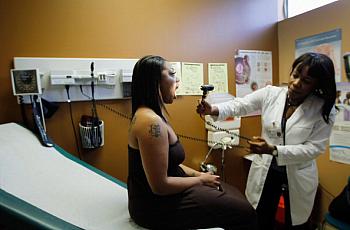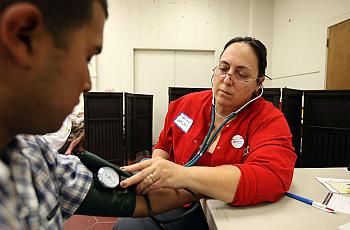
Louise McCarthy
President & CEO

President & CEO
Louise McCarthy is the President & CEO of the Community Clinic Association of Los Angeles County (CCALAC), where she represents the interests of LA area Community Clinics and Health Centers, and those they serve. Prior to taking this role, Ms. McCarthy served as CCALAC’s Vice President of Governmental Affairs for three years. Before joining CCALAC, Ms. McCarthy was the Assistant Director of Policy for the California Primary Care Association, where she worked on statewide legislative, regulatory and administrative issues impacting California’s community clinics and health centers. She has also worked for the California Bureau of State Audits, conducting performance evaluations of state agencies, and for the Los Angeles Area Chamber of Commerce, analyzing policies affecting the business community. Ms. McCarthy is the Chair of the Board of L.A. Care Health Plan, Vice Chair of the National Association of Community Health Center’s Health Center Controlled Network (HCCN) Taskforce, and an executive committee member of the the California Primary Care Association Board of Directors. She holds a Masters in Public Policy from the UCLA School of Public Affairs.
![[Photo by wp paarz via Flickr.]](/sites/default/files/styles/teaser_list_thumbnail/public/title_images/unnamed_163.jpg?itok=NHazXjVM)
Before, LA's community clinics had to have a face-to-face visit to get paid for caring for some of the county's poorest, sickest residents. A new model gives clinics a monthly amount per patient, allowing for better care, leaders say.
![[Photo by Ryan Vaarsi via Flickr.]](/sites/default/files/styles/teaser_list_thumbnail/public/title_images/unnamed_141.jpg?itok=BDBj03TG)
Community clinics in Los Angeles know they have to find new ways to get at the social factors that ultimately shape health if they're going to make a real difference in their patients' lives.

Since the passage of the Affordable Care Act (ACA), community clinics have played an important role providing care for newly insured Americans. Funding for programs that enable community clinics to meet patient's needs will expire on September 30th, if Congress doesn’t act.

The growth of Los Angeles’ safety net has been dramatic since the Affordable Care Act took effect. Now clinics are anxiously wondering if the many changes they've made can be sustained if the ACA is repealed.